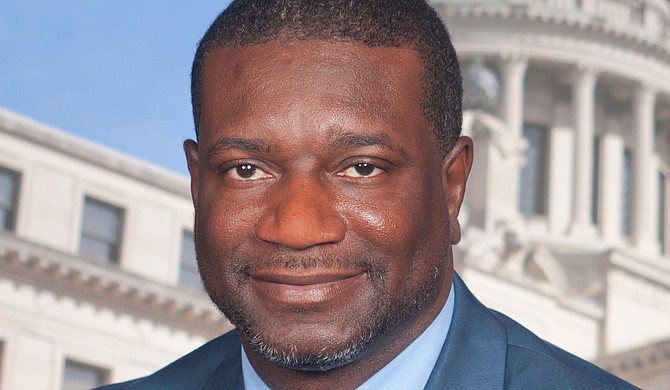JACKSON, Miss. (AP) — The new chairman of the Mississippi Senate Corrections Committee inherited a challenging job — sharing oversight of a prison system rocked by violence and burdened by decrepit and underfunded facilities.
Democratic Sen. Juan Barnett of Heidelberg said in an interview Thursday that prisons need to be more than warehouses. He also said Mississippi needs to do a better job of rehabilitating inmates so they will be ready to work and earn their own living after they are released.
“My focus is to make sure that what we do today is not just good for today, but for decades to come,” said Barnett, a former mayor who is in his second term in the Senate.
At least 14 inmates died in Mississippi prisons from late December through late January. Most of the deaths happened at the Mississippi State Penitentiary at Parchman, and many of them happened amid violent confrontations.
Republican Gov. Tate Reeves was inaugurated Jan. 14 after serving eight years as lieutenant governor. As lieutenant governor, Reeves presided over the Senate and had great influence over state budgets, including decisions not to fund multiple requests made by leaders of the Mississippi Department of Corrections for money to increase prison guards' low salaries and to repair Parchman's notorious Unit 29.
State health inspections showed lingering problems at Parchman, including broken toilets and sinks, holes in cell walls, birds' nests in windows and widespread mold and mildew in showers.
Reeves said during his State of the State speech Jan. 27 that the state will take steps to shut down Unit 29, which consists of multiple buildings. The interim commissioner of corrections, Tommy Taylor, told reporters moments later that crews had already started repairing sinks and toilets and had restored heat to Unit 29.
Some inmates went days without showers when prisons were locked down after the violence. A woman who spoke at a rally Jan. 24 said her husband is incarcerated in Parchman, and he and others had to defecate in plastic bags when toilets were broken.
Dozens of Mississippi sheriffs were at the state Capitol the middle of last week, and Barnett said many of them wanted to talk about the possibility of the state moving some inmates to county or regional jails. The state would pay sheriffs' departments to house inmates.
“Everyone is talking about the cost,” Barnett said. “You know, 'I'll keep your people at this cost.'"
Barnett said housing is an issue, but it's not the only consideration.
“For so long, all we have done in our corrections system is house individuals,” Barnett said.
He said state policymakers need to expand the conversation beyond just housing prisoners as a way to keep county jails, regional jails or private prisons open.
“What we need to be talking about is the things ... that they are willing to do to make sure that they're not just only housing these people, but to make sure that there's rehabilitation going on, as well, so that we don't have this problem going forward,” Barnett said.
Hosemann appointed Barnett as the Corrections Committee chairman, and the two men express similar goals.
Hosemann said the first step in the immediate prison crisis is to secure Parchman. The second step is to move prisoners to other facilities. The third step is to make sure inmates receive education and job-skills training and that they have a valid driver's license before they are free — a necessary step because public transit is scarce in Mississippi.
Hosemann said the fourth step is to have former inmates back out in the community with the goal that they will be productive and that they won't commit an offense that sends them back to prison.
“Clearly, Mississippi is better than Unit 29," Hosemann said.
Copyright Associated Press. All rights reserved. This material may not be published, broadcast, rewritten, or redistributed.



Comments
Use the comment form below to begin a discussion about this content.